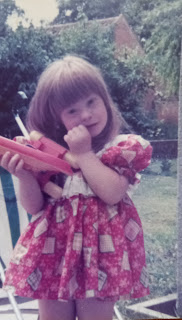Sticks and stones may break my bones but words will never hurt me.
What a load of twaddle! How naive, loved and protected from harm was I when as a young children we would taunt this in the school playground. If only it were true and words never did hurt us, guided and steered us, kept us on the right path but never deep down hurt us.


Words are powerful and the words that are written about us and spoken over and around us help to grow and shape us into the people we become. Positive words, words of affirmation, caring, loving, supporting and trusting words all build us up giving us a sense of worth and value, a sense of purpose and belonging and so much more. On the other hand though negative words, misplaced words, words of condemnation, cruel, vicious and hateful words can all destroy. Words are powerful! I can still hear my mum saying to me "If you can't find anything nice to say don't say anything at all", and the words of a poster I recall giving to my son many years ago springs to mind too "Don't open your mouth before your brain is in gear". These are sound words of advice carrying well into this day when demeaning, hurtful and hateful words seem to be so readily thrown around on social media platforms. Sometimes, although still totally unacceptable behaviour, this may be thoughtlessly done in the pique of the moment or through ignorance of the harm that a word or expression may do. Sadly though it seems that it is all to often done with the intent to hurt and discriminate with no care for the damage that may be done with those words.

Currently we are hearing about the use of hateful, racially abusive words directed, by a minority, towards three admirable young men. Young men that were gallantly representing their country in the Euro 2020 football final. The game had gone to penalties with these three being among those going forward to take penalty shots. They missed, losing England the match, they must have been devastated knowing what had been resting on their shoulders. Fans were devastated too the trophy was not coming home, this is the closest England had been to it for such a long time, it had been within touching distance and then gone. I felt the lose and I'm not a football fan. Disappointment is however no excuse for the racially abuse messages these young men received. While it may only have been a minority acting in this way their deplorable words potentially had the power to destroy lives. It is totally unacceptable that anyone is treated abusively or discriminated against and the majority were outraged at this behaviour displayed by a few. Sadly though as people stood up in defence of these young men unintentionally others were getting hurt. Words such as idiots, cretins and imbeciles were hurled as insults as people expressed their feelings about this abhorrent behaviour. These words along with others that have merged into everyday language to be used in an insulting way have all in the past been medical terminology used to describe people with learning disabilities. As understanding grows terminology may change but this doesn't make the words any less hurtful or demeaning when used without thought. Words are powerful, words can hurt. As Sammy, my daughter, was growing up and before Down’s Syndrome was widely
known as Down’s Syndrome it was not unusual to hear the term Mongol or
Mongoloid (the medical terminology used when I was given the diagnoses of Sammy’s condition) thrown
out as an insult or used in a verbally abusive way in regard to someone’s
behaviour or to simply to try and offend them. I’m
glad to say that use of this particular terminology in this manner seems to have faded away. The feelings
evoked from the misuse of these words however runs deep and as a parent you grow broad
shoulders and find inventive ways to protect your child from the damage that being the brunt of peoples jokes and fears and misunderstanding can cause. Nobody wants their child growing up believing that in the eyes of society in general their lives are considered to be worth less than that of their siblings or anybody else's but this is what the thoughtless use of words can do. If these words are not challenged the negativity can seep deep into your fibre leaving tender wounds
that may never completely heal.
Words are powerful, words can hurt, destroy and discriminate and so often target the vulnerable and marginalised within society, those that can find using words a challenge, people that should be cared for and protected from their harm. Words are powerful, words can hurt but the power of words can also be used to heal, praise, restore, build self-esteem and a sense of self-worth, include, make welcome, raise up, affirm, bring joy, hope and love....... Words are powerful use them carefully.



















